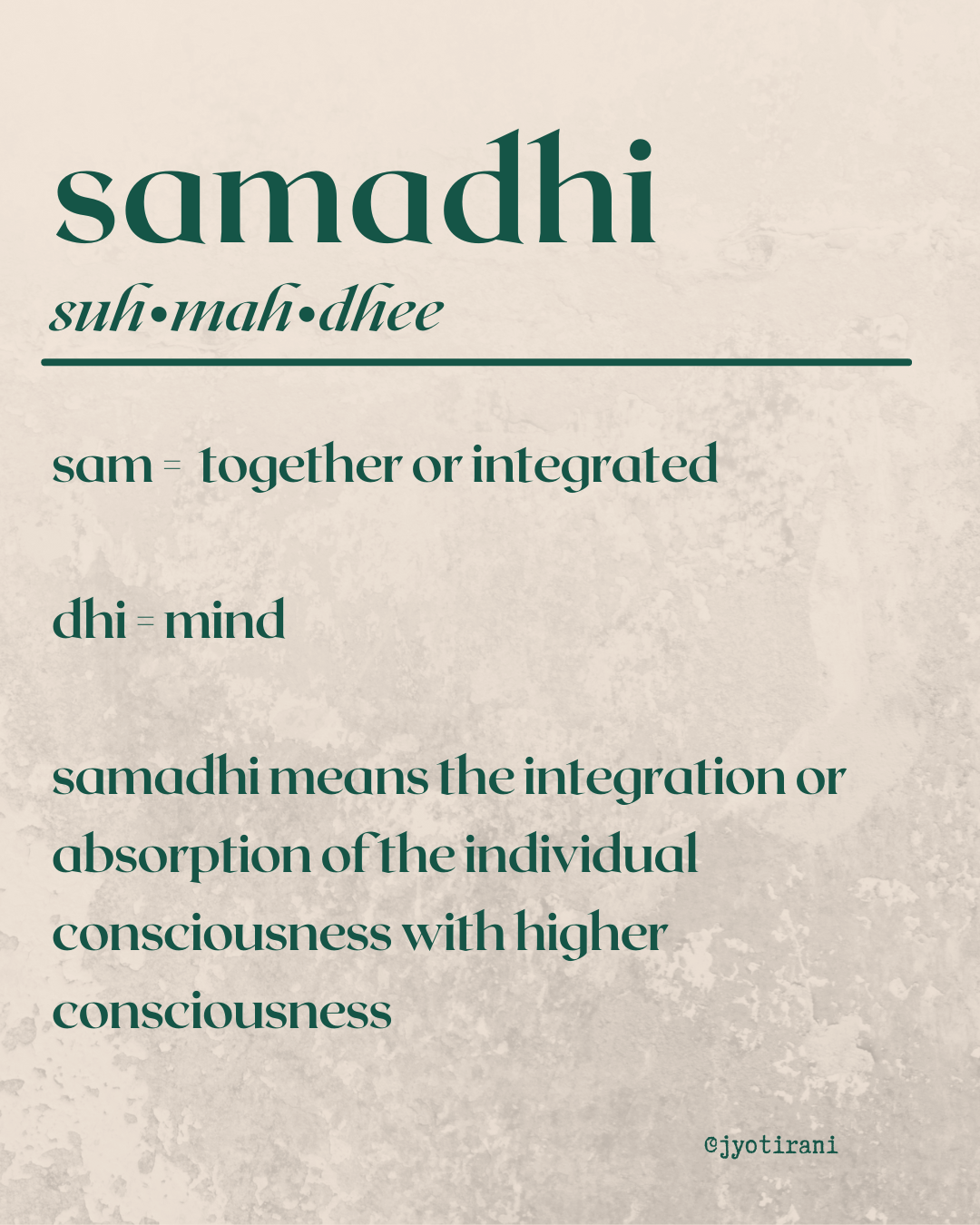What is Samadhi?
Samadhi (suh-mah-dhee), the eighth and final limb of Patanjali's Yoga Sutras, is the ultimate goal of yoga. This Sanskrit word is derived from the word ‘sam’ which means together or integrated and ‘dhi’ which means mind. Together it means the integration or absorption of the individual consciousness with higher consciousness ~ a state of oneness. It’s the realisation of a profound spiritual practice.
In the practice of samadhi, one reaches a state where the mind transcends all distractions, attachments, and dualities. The practitioner attains perfect stillness and unity, with no distinction between the meditator, the act of meditation, and the object of meditation. This is often described as a state of pure bliss, where the ego dissolves, and one becomes fully aware of their true, unbounded self.
In samadhi, one is completely absorbed in the present moment, free from the anxieties of the past and the worries about the future. This state of mindfulness and presence can profoundly enhance one's daily life, fostering a deep sense of joy and contentment.
When one reaches this state, they are liberated from suffering and samsara ~ the cycle of birth and death. By transcending the ego and recognizing the interconnectedness of all existence, the practitioner breaks free from the chains of desires and attachments, leading to a state of enduring peace and contentment.
So how does one reach samadhi?
The path to samadhi is not an easy one and may take years of dedicated practice. It demands unwavering commitment, self-discipline, and a deep understanding of the preceding seven limbs of yoga. Here’s a summary of the key practices to help you on your journey:
Yamas and Niyamas ~ upholding ethical principles in your life sets the foundation for a peaceful and balanced mind.
Asana and Pranayama ~ physical postures and extending and expanding your prana prepare the body and mind for deeper states of meditation.
Pratyahara ~ withdrawing from the sense organs to prepare for the next three limbs.
Dharana and Dhyana ~ concentration and meditation practices help build the necessary mental discipline and focus.
With love & gratitude
Jyoti x
(pronounced Jyo-thee)
Article written for Ekotex Yoga ~ visit www.ekotexyoga.com to see more and save 10% with my code 'JYOTIRANI'

